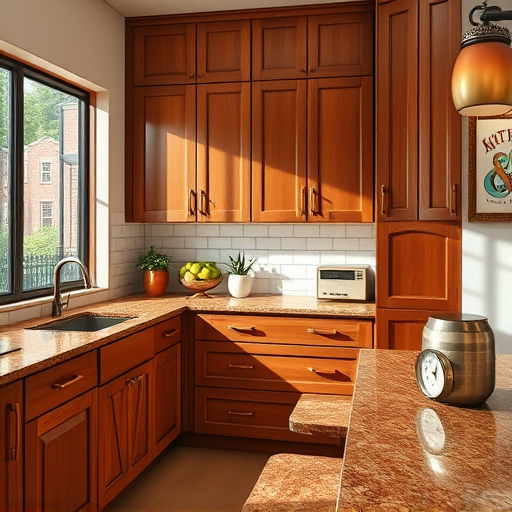
How to Remove Scratches from Countertops: Easy Repair Tips
How to Remove Scratches from Countertops: An Easy Guide to Restoring Your Surface's Shine
Countertops are the centerpiece of your kitchen or bathroom, blending functionality with aesthetic appeal. Over time, however, daily use can lead to scratches that dull their appearance and compromise their elegance. Fortunately, knowing how to remove scratches from countertops can significantly prolong their lifespan and keep them looking pristine. Whether you have a sleek granite surface, a quartz countertop, or a classic laminate, this comprehensive guide will walk you through effective methods to repair surface scratches and restore your countertop’s shine effortlessly.
What Are the Common Causes of Scratches on Countertops?
Understanding how scratches happen is the first step toward preventing and repairing them. Common causes include:
- Cutting without a board: Using knives directly on the countertop can scratch even the toughest surfaces.
- Dragging heavy objects: Moving appliances or heavy utensils across the surface can leave marks.
- Cleaning with abrasive tools: Scrubbing with steel wool or harsh abrasives can create fine scratches.
- Accumulated debris: Dirt particles trapped under objects can act as abrasives.
How Do Different Countertop Materials Respond to Scratches?
Countertop materials differ significantly in how they tolerate scratches and how easy they are to repair:
- Granite: Very durable, but scratches can be ingrained if abrasive cleaners are used.
- Quartz: Highly resistant to scratches, though some products can leave marks if improperly cleaned.
- Laminate: Prone to visible scratches, but easy to repair with DIY methods.
- Marble: Soft natural stone, scratches more easily and may require professional care.
Are There Quick Fixes to Remove Minor Surface Scratches?
Absolutely. For superficial scratches, simple home remedies can go a long way. These are especially effective for minor surface imperfections:
Can You Use Baking Soda and Water for Scratch Removal?
Yes. Creating a paste of baking soda and water can gently buff out minor scratches. Apply the paste to the scratch, then scrub softly with a microfiber cloth in a circular motion. Rinse thoroughly with clean water and dry with a soft cloth.
Is Using White Toothpaste an Effective Solution?
Many homeowners swear by this method. Use a non-gel, mild white toothpaste. Dab a small amount onto a soft cloth and gently rub it over the scratch. Wipe clean with a damp cloth and repeat if necessary. This works best for superficial imperfections.
When Should You Consider Professional Repair?
Deeper scratches that penetrate the surface or mess with the integrity of the countertop often require professional intervention. It’s wise to consider an expert if:
- The scratch is deep and visible from afar.
- The damage affects the surface’s structural integrity.
- DIY methods fail to improve the appearance.
Professional restoration may involve sanding, polishing, or refinishing the surface, especially for high-end materials like granite or marble. For more insights into sophisticated upgrades, check out our post on stone veneer for kitchen walls which highlights surface enhancement techniques.
How To Clean Your Countertops to Prevent Future Scratches?
Prevention remains the best strategy to maintain pristine surfaces. Follow these tips to keep your countertops scratch-free:
- Use cutting boards: Always chop or cut with a proper board to avoid direct contact.
- Lift and slide: Instead of dragging heavy objects, lift them to prevent scratches.
- Use gentle cleaning tools: Prefer soft sponges or microfiber cloths over abrasive pads.
- Regularly seal surfaces: For stone countertops like granite, sealing provides an extra layer of protection.
What Are Some DIY Techniques to Repair Specific Types of Scratches?
How to Remove Light Scratches from Laminate Countertops?
Light scratches on laminate surfaces can often be concealed or reduced by applying a laminate repair kit, available at most hardware stores. Alternatively, use a wax-based furniture polish to fill smaller scratches and restore uniformity.
Can You Buff Out Deep Scratches on Granite?
Deep scratches typically require professional polishing, but some homeowners with experience can attempt buffing using a specialized granite polishing compound. Always follow manufacturer instructions or consult a professional for best results.
Is There a Way to Use Natural Remedies for Countertop Resurfacing?
Natural solutions can sometimes help in maintaining the shine and concealing minor scratches:
- Olive oil or mineral oil: Applying a small amount can enhance shine and temporarily mask surface imperfections.
- White vinegar and baking soda: A gentle cleaning duo that helps dissolve residues that may accentuate scratches.
How Can I Restore the Shine After Removing Scratches?
After repairing or cleaning, it’s important to re-establish your countertop’s gloss:
- Use a polishing paste: Choose a product tailored for your countertop material and buff in circular motions.
- Apply a sealant: For natural stone surfaces, resealing can help lock in the shine and prevent future damage.
- Regular cleaning: Maintain a routine using non-abrasive cleaners to preserve the surface’s luster.
Can I Prevent Scratches When Replacing or Upgrading My Kitchen Cabinets?
Absolutely! Upgrading your kitchen cabinets can significantly improve your space’s overall look. When planning your upgrade, consider visiting our post on kitchen cabinets 900mm wide for optimal layout solutions that complement your countertops and reduce accidental damage during renovations.
FAQs: How to Remove Scratches from Countertops
For minor scratches on quartz, try using a mixture of baking soda and water to gently buff out the mark with a soft cloth. Avoid abrasive cleaners that could damage the surface.
Yes, many products are formulated specifically for countertop repair, including polishing compounds and scratch removers. Always select options compatible with your countertop material and follow the manufacturer’s instructions carefully.
Typically, resealing should be done annually, but it depends on the usage and sealer quality. Regular inspection helps identify when resealing is necessary to maintain surface protection.
Final Thoughts: Prolonging the Beauty of Your Countertops
Learning how to remove scratches from countertops empowers homeowners to tackle minor damages swiftly and confidently. With careful maintenance and timely repairs, your surfaces can retain their elegance and functionality for years to come. Remember to choose the right methods based on your countertop material, and don’t hesitate to consult professionals for deep scratches or complex repairs. For expert assistance, explore our home remodeling pros who can help restore any surface to its original beauty and beyond.





















